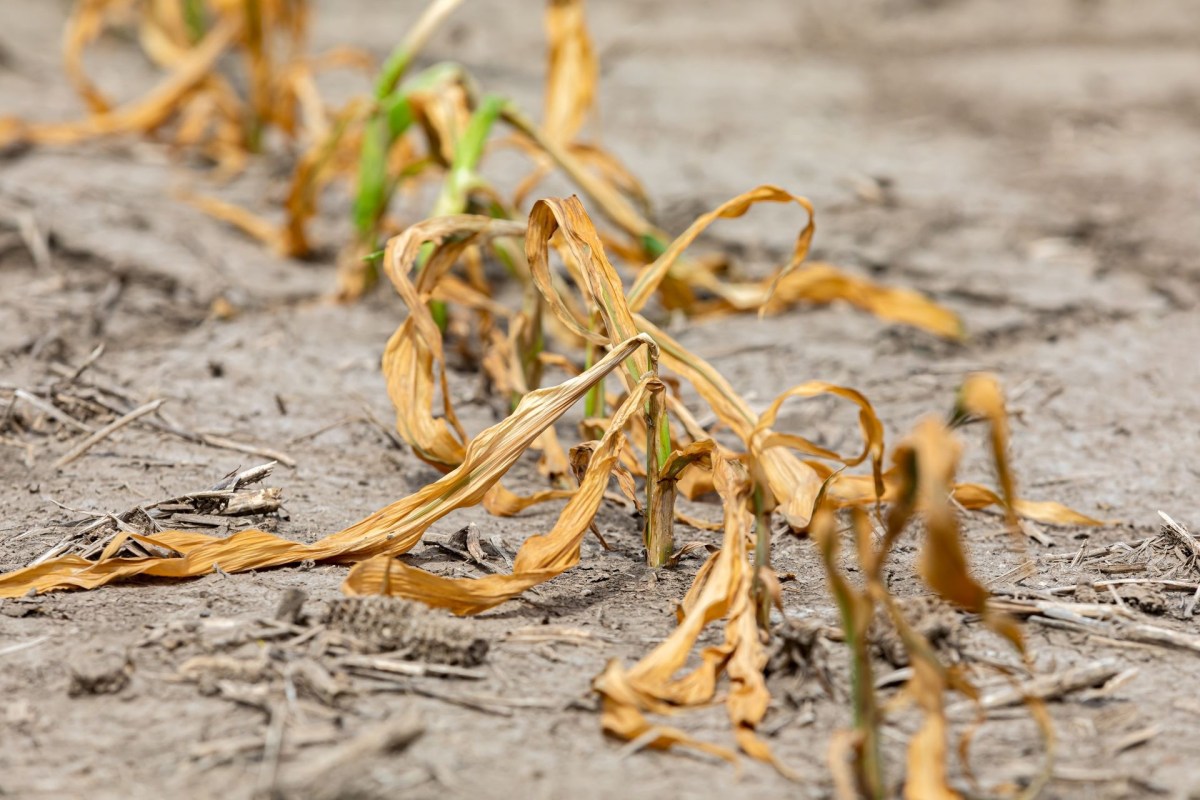The United States' 100th meridian, which marks the divide between the drier West and the more humid East, is slowly moving eastward due to the planet's changing temperatures.
This shift could have serious impacts on how food systems work and could cause water shortages for millions of Americans.
The line has moved about 140 miles since 1980, researchers say. Climate scientist Richard Seager, who led two 2018 studies appearing in the journal "Earth Interactions," predicted that as this drying trend continues, farms further east will need to combine and grow to survive. Farmers would need to adapt or use irrigation, or change crops.
According to the Union of Concerned Scientists, the growth of farm size associated with consolidation leads to landscape simplification. This can lead to monocultures (fields of one plant species) replacing natural vegetation. Larger farms also require more fertilizers and pesticides.
But it gets worse.
"Large expanses of cropland may fail altogether, and have to be converted to western-style grazing range," reported a press release on the studies from Columbia Climate School. "Water supplies could become a problem for urban areas."
Water shortages are nothing new in the West. Lake Mead in Nevada and Arizona and Lake Powell in Utah and Arizona are at their lowest levels ever.
"The conditions in the American West, which we're seeing around the Colorado River basin, have been so dry for more than 20 years that we're no longer speaking of a drought," said Lis Mullin Bernhardt, an ecosystems expert at the United Nations Environment Programme (UNEP). "We refer to it as 'aridification' — a new very dry normal."
Aridification, drought, and desertification are all considered part of the "new normal" across the globe as the overheating of our planet intensifies.
In response to the studies, Marshall Shepherd, a weather and climate expert, tweeted, "A rare wow for me. A North American Climate Boundary Has Shifted 140 Miles East Due to Global Warming."
One Reddit user recently posted a map of the shifting climate line in the MapPorn subreddit, which stirred up plenty of conversation.
One person commented, "Few understand the implications this will have on our food systems. One can produce calories from wheat or millet on drylands. Just a lot less. At some point, arid land agriculture cuts into human carrying capacity. And when people are spending more of their incomes for food, that's less for everything else."
Join our free newsletter for cool news and cool tips that make it easy to help yourself while helping the planet.









